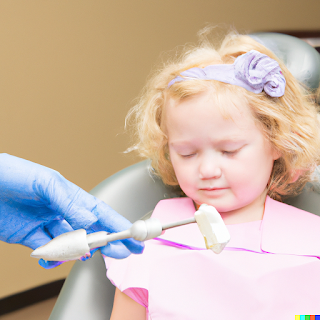Understanding the Stages of Child Development: A Comprehensive Guide
Child development is a complex process that occurs from infancy to adolescence, and it is crucial for parents and caregivers to understand the various stages involved. Each stage comes with its unique milestones and challenges that contribute to a child's growth, both physically and mentally. In this guide, we will explore the key stages of child development, focusing on the physical, cognitive, emotional, and social aspects.
1. Infancy (0-12 months)
The first year of a child’s life is filled with rapid growth and development. During this stage, infants typically experience:
- Physical Development: Babies double their birth weight by around six months and develop motor skills like rolling over and crawling.
- Cognitive Development: Infants begin to understand their environment, showing curiosity and starting to recognize familiar faces and objects.
- Emotional Development: This is when attachment forms. Babies express emotions like happiness, fear, and frustration.
- Social Development: Infants engage in interactions through smiles and cooing, beginning to form bonds with caregivers.
2. Toddlerhood (1-3 years)
Toddlers are known for their increasing independence and exploration. Key milestones include:
- Physical Development: Children learn to walk, run, and climb. Fine motor skills improve, enabling them to grasp objects and manipulate toys.
- Cognitive Development: Language skills begin to flourish, with toddlers learning to speak simple sentences. They also start to engage in imaginative play.
- Emotional Development: This stage often sees temper tantrums as toddlers struggle with emotional regulation. They begin to understand and express a range of emotions.
- Social Development: Toddlers start to play alongside other children (parallel play) but may not yet engage in cooperative play.
3. Early Childhood (3-6 years)
During early childhood, children continue to grow and learn at an incredible pace. Notable aspects include:
- Physical Development: Kids improve their coordination and balance, participating in activities like running, jumping, and throwing.
- Cognitive Development: The ability to think logically begins to develop. Children can follow instructions and understand the concept of time.
- Emotional Development: They begin to develop a sense of self and learn to manage emotions. Empathy starts to emerge as they learn to consider others’ feelings.
- Social Development: Cooperative play becomes more common, and children learn to share and take turns. Friendships begin to form.
4. Middle Childhood (6-12 years)
This stage is often marked by significant growth in several areas:
- Physical Development: Children become more skilled in physical activities and sports, showing improved strength and endurance.
- Cognitive Development: They develop critical thinking and problem-solving skills, becoming more capable of understanding complex concepts.
- Emotional Development: Middle childhood is characterized by a growing understanding of emotions and increased self-esteem as children receive feedback from peers and adults.
- Social Development: Friendships become more significant, and children learn to navigate social dynamics. They begin to understand social rules and relationships better.
5. Adolescence (12-18 years)
The teenage years are a time of significant change and development. Key features include:
- Physical Development: Adolescents experience puberty, leading to physical changes and growth spurts.
- Cognitive Development: They develop abstract thinking skills and can reason more effectively. Decision-making abilities become more sophisticated.
- Emotional Development: Identity formation is a critical task during adolescence, and teenagers often explore different roles and beliefs.
- Social Development: Relationships with peers become increasingly important, and teenagers start to seek independence from their parents.
Conclusion
Understanding the stages of child development is vital for parents, caregivers, and educators to support children’s growth effectively. Each stage presents unique challenges and milestones that contribute to a child’s overall well-being.
At Right Medical Centre, we recognize the importance of pediatric care during these critical stages of development. Our dedicated team of pediatricians is committed to providing comprehensive healthcare services tailored to the needs of your child. From routine check-ups to developmental assessments, we strive to ensure that your child reaches their full potential. To learn more about our pediatric services, visit our Pediatrics page and see how we can support your child's health journey. If you would like to schedule an appointment, please visit our appointment booking page.



Comments
Post a Comment